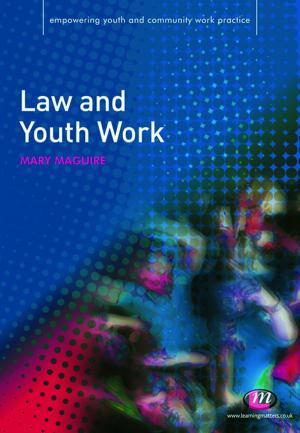Prison Flowers
Nonfiction, Social & Cultural Studies, Social Science, Volunteer Work, Crimes & Criminals, Penology, Social Work| Author: | Flavia Ribeiro de Castro | ISBN: | 1230000213328 |
| Publisher: | Flavia Ribeiro de Castro | Publication: | January 27, 2014 |
| Imprint: | Language: | English |
| Author: | Flavia Ribeiro de Castro |
| ISBN: | 1230000213328 |
| Publisher: | Flavia Ribeiro de Castro |
| Publication: | January 27, 2014 |
| Imprint: | |
| Language: | English |
With a gentle, thoughtful narrative driven by an intense rhythm, the author immerses the reader in her story from the very first chapter. As she relates the pains and pleasures of her work within the cold jail environment, she seems able to make us feel exactly what she wants: she makes us laugh, cry, reflect, and face our own doubts and limitations. She shares intimacies and secrets with us, making the reader her accomplice and confidant, and we find ourselves supporting her all the way.
Based on real experiences, Prison Flowers is both an unusual thriller and an exploration of the female realm and its mysteries. A book that offers truth, emotion, life stories, few certainties and many doubts. A gripping tale that exposes the exclusion, abandonment and violence rife in women’s prisons in Brazil, but at the same time showing how the world can be transformed with affection, respect and hard work.
Flavia Ribeiro de Castro was born in São Paulo in 1962. With a degree in Business Management from the University of São Paulo, she applies her knowledge within the fields of education and social work. She has worked with children in need, young people whose rights have been violated and illiterate adults. She has volunteered in shelters, shantytowns and small rural communities. She was head of a formal school and coordinator of Education for Illiterate Adults and Young People in the municipality of São Sebastião. In São Paulo, she served as director of the Butantã Shelter and a member of the Cruzada Pró-Infância counselling board. In 2006 she established the NGO Educaalma, which develops projects dealing with Education for Communal Living.
Flavia has devoted herself to social causes since adolescence and believes that voluntary work endows her with a better understanding both of the world and of her own personal story. From October 2004, she spent more than a year volunteering at Santos Women’s Jail with the aim of building a culture of peace. Five years on, she has decided to share her experiences.
With a gentle, thoughtful narrative driven by an intense rhythm, the author immerses the reader in her story from the very first chapter. As she relates the pains and pleasures of her work within the cold jail environment, she seems able to make us feel exactly what she wants: she makes us laugh, cry, reflect, and face our own doubts and limitations. She shares intimacies and secrets with us, making the reader her accomplice and confidant, and we find ourselves supporting her all the way.
Based on real experiences, Prison Flowers is both an unusual thriller and an exploration of the female realm and its mysteries. A book that offers truth, emotion, life stories, few certainties and many doubts. A gripping tale that exposes the exclusion, abandonment and violence rife in women’s prisons in Brazil, but at the same time showing how the world can be transformed with affection, respect and hard work.
Flavia Ribeiro de Castro was born in São Paulo in 1962. With a degree in Business Management from the University of São Paulo, she applies her knowledge within the fields of education and social work. She has worked with children in need, young people whose rights have been violated and illiterate adults. She has volunteered in shelters, shantytowns and small rural communities. She was head of a formal school and coordinator of Education for Illiterate Adults and Young People in the municipality of São Sebastião. In São Paulo, she served as director of the Butantã Shelter and a member of the Cruzada Pró-Infância counselling board. In 2006 she established the NGO Educaalma, which develops projects dealing with Education for Communal Living.
Flavia has devoted herself to social causes since adolescence and believes that voluntary work endows her with a better understanding both of the world and of her own personal story. From October 2004, she spent more than a year volunteering at Santos Women’s Jail with the aim of building a culture of peace. Five years on, she has decided to share her experiences.















